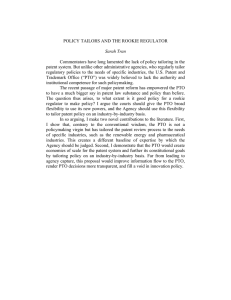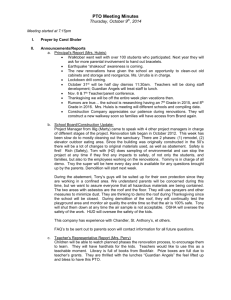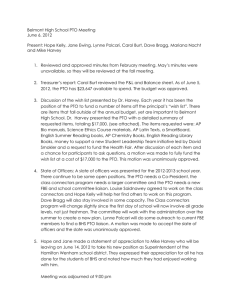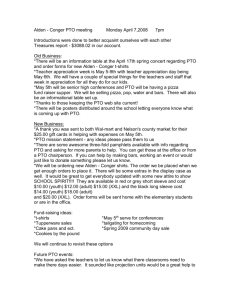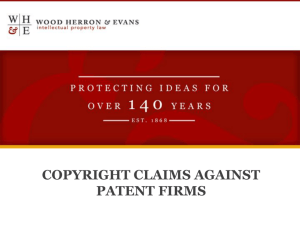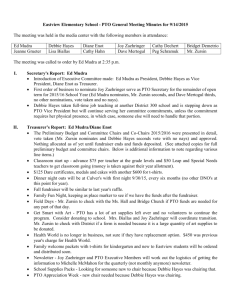Do Agencies Delay Costly Obligations?: An Empirical Analysis of
advertisement
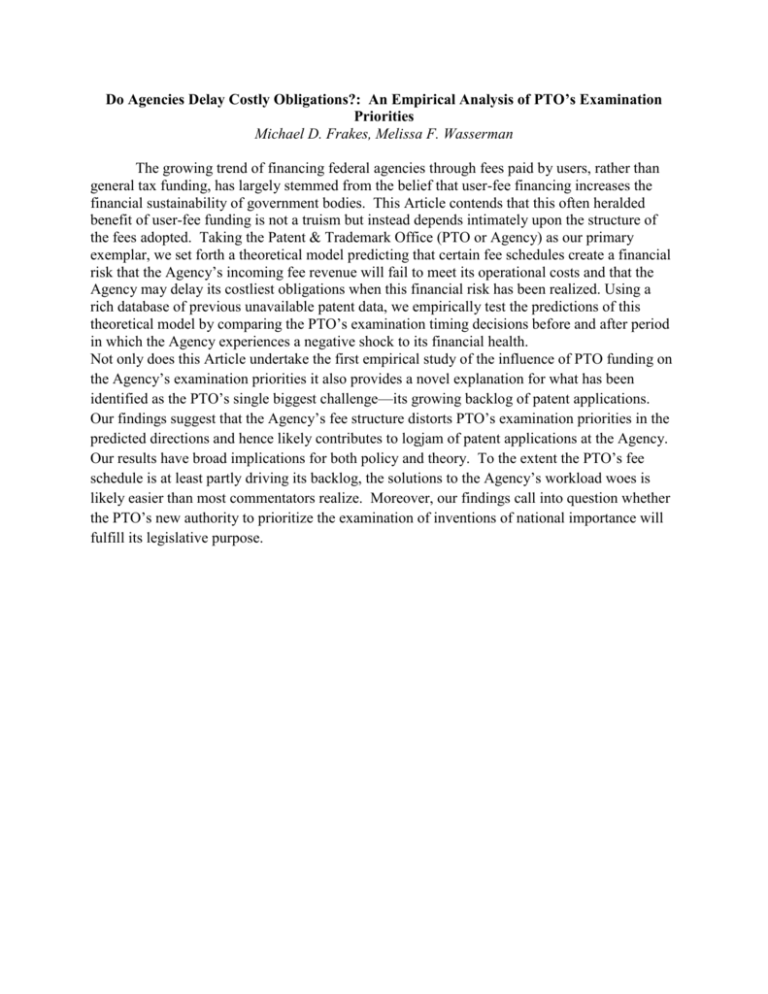
Do Agencies Delay Costly Obligations?: An Empirical Analysis of PTO’s Examination Priorities Michael D. Frakes, Melissa F. Wasserman The growing trend of financing federal agencies through fees paid by users, rather than general tax funding, has largely stemmed from the belief that user-fee financing increases the financial sustainability of government bodies. This Article contends that this often heralded benefit of user-fee funding is not a truism but instead depends intimately upon the structure of the fees adopted. Taking the Patent & Trademark Office (PTO or Agency) as our primary exemplar, we set forth a theoretical model predicting that certain fee schedules create a financial risk that the Agency’s incoming fee revenue will fail to meet its operational costs and that the Agency may delay its costliest obligations when this financial risk has been realized. Using a rich database of previous unavailable patent data, we empirically test the predictions of this theoretical model by comparing the PTO’s examination timing decisions before and after period in which the Agency experiences a negative shock to its financial health. Not only does this Article undertake the first empirical study of the influence of PTO funding on the Agency’s examination priorities it also provides a novel explanation for what has been identified as the PTO’s single biggest challenge—its growing backlog of patent applications. Our findings suggest that the Agency’s fee structure distorts PTO’s examination priorities in the predicted directions and hence likely contributes to logjam of patent applications at the Agency. Our results have broad implications for both policy and theory. To the extent the PTO’s fee schedule is at least partly driving its backlog, the solutions to the Agency’s workload woes is likely easier than most commentators realize. Moreover, our findings call into question whether the PTO’s new authority to prioritize the examination of inventions of national importance will fulfill its legislative purpose.

